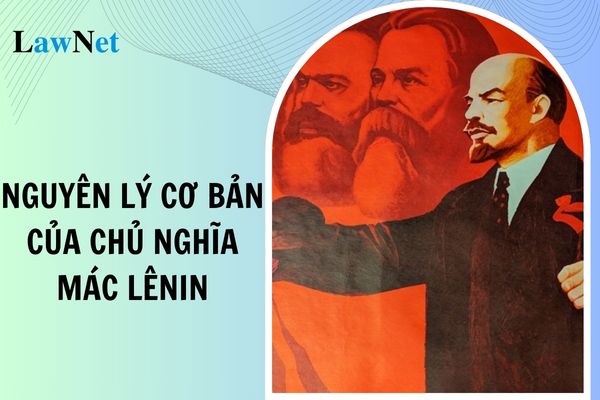What are the objectives of the non-specialist course on the basic principles of Marxism-Leninism in Vietnam?
What does Marxism-Leninism mean?
Under subsection 1, Section I of the Program issued under Decision 52/2008/QD-BGDDT outlining Marxism-Leninism:
OVERVIEW OF MARXISM-LENINISM
1. Marxism-Leninism and its three foundational theoretical components
a) Marxism-Leninism
Marxism-Leninism "is a system of scientific viewpoints and doctrines" developed by C. Marx, F. Engels, and advanced by V.I. Lenin; it inherits and develops the values of the history of human thought, based on the practical realities of the age; it is a science concerning the liberation of the proletariat class, the liberation of the working people, and the liberation of humanity; it represents both a universal worldview and a methodology for scientific understanding.
...
Thus, Marxism-Leninism "is a system of scientific viewpoints and doctrines" developed by C. Marx, F. Engels, and advanced by V.I. Lenin.
It inherits and develops the values of the history of human thought, based on the practical realities of the age; it is a science concerning the liberation of the proletariat class, the liberation of the working people, and the liberation of humanity; it represents both a universal worldview and a methodology for scientific understanding

What are the objectives of the non-specialist course on the basic principles of Marxism-Leninism in Vietnam? (Image from the Internet)
What are the objectives of the non-specialist course on the basic principles of Marxism-Leninism in Vietnam?
Under the Program issued under Decision 52/2008/QD-BGDDT, the objectives of the non-specialist course on the basic principles of Marxism-Leninism in Vietnam are to assist students in:
- Establishing the most fundamental theoretical basis from which to access the content of Ho Chi Minh Thought and the Revolutionary Path of the Communist Party of Vietnam, and understanding the ideological foundation of the Communist Party;
- Developing faith and revolutionary ideals for students;
- Gradually establishing a comprehensive worldview and methodology to approach the specialized sciences being studied.
What are the purposes of studying the basic principles of Marxism-Leninism in Vietnam?
Under sub-section 2, Section II of the course program issued under Decision 52/2008/QD-BGDDT, the purpose and methodological requirements for learning and studying the basic principles of Marxism-Leninism are:
Regulated entities and scope of learning and studying
- The entities eligible for learning and studying "The Basic Principles of Marxism-Leninism" are: "the viewpoints and doctrines" of C. Marx, F. Engels, and V.I. Lenin within the scope of the most fundamental viewpoints and doctrines that constitute the three main components of Marxism-Leninism.
Purpose of learning and studying
- The purpose of Learning and studying the Basic Principles of Marxism-Leninism is to develop a scientific worldview and methodology and creatively apply these principles in cognitive and practical activities.
- Learning and studying the Basic Principles of Marxism-Leninism is to clearly understand the most important theoretical foundation of Ho Chi Minh Thought and the Revolutionary Path of the Communist Party of Vietnam.
- Learning and studying the Basic Principles of Marxism-Leninism helps students clearly understand the ideological foundation of the Communist Party of Vietnam.
- Learning and studying the Basic Principles of Marxism-Leninism is intended to develop faith and ideals for students.
Some basic methodological requirements for learning and studying
- Learning and studying the Basic Principles of Marxism-Leninism must consistently link its fundamental viewpoints with the realities of the country and the era.
- Learning and studying the Basic Principles of Marxism-Leninism requires a correct understanding of its essence; avoiding scholasticism and dogmatism in the process of studying, researching, and applying these principles in practice.
- Learning and studying each principle of Marxism-Leninism should be done in relation to other principles, each constituent part in relation to other constituent parts to see the rich and consistent unity of Marxism-Leninism, while also perceiving these principles in the development trajectory of human intellectual history.

